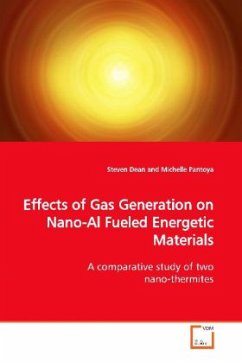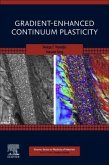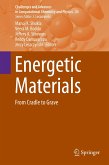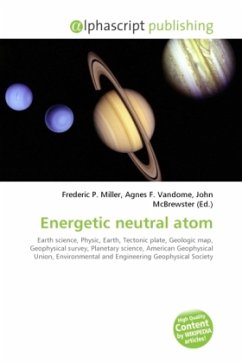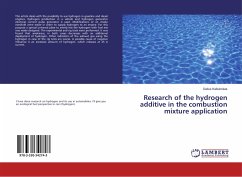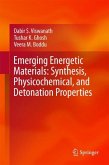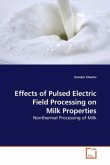The reactions of two nano-thermites, aluminum (Al)
with copper oxide (CuO) and Al with nickel oxide
(NiO) are studied. These oxidizers were selected
based on their predicted properties: similar flame
temperatures but significantly opposing gas
generation. Thermal equilibrium calculations predict
that Al+CuO will have a high gas output and the
Al+NiO will produce little gas. Flame propagation
rates and peak pressure measurements were taken for
both composites at various equivalence ratios using
an instrumented flame tube. Results show that the
Al+CuO had approximately twice the propagation rate
and peak pressure of the Al+NiO. A DSC/TGA was used
to determine the properties of the composites and
reactants under low heating rates. Results indicate
that under slow heating both composites experience
almost no mass loss. The results suggest that the
melt-dispersion mechanism, which is only engaged at
high heating rates, leads to a dispersion of high
velocity molten Al clusters that promotes a pressure
build-up by inducing a bulk movement of fluid. This
mechanism may promote convection without the need for
additional gas generation.
with copper oxide (CuO) and Al with nickel oxide
(NiO) are studied. These oxidizers were selected
based on their predicted properties: similar flame
temperatures but significantly opposing gas
generation. Thermal equilibrium calculations predict
that Al+CuO will have a high gas output and the
Al+NiO will produce little gas. Flame propagation
rates and peak pressure measurements were taken for
both composites at various equivalence ratios using
an instrumented flame tube. Results show that the
Al+CuO had approximately twice the propagation rate
and peak pressure of the Al+NiO. A DSC/TGA was used
to determine the properties of the composites and
reactants under low heating rates. Results indicate
that under slow heating both composites experience
almost no mass loss. The results suggest that the
melt-dispersion mechanism, which is only engaged at
high heating rates, leads to a dispersion of high
velocity molten Al clusters that promotes a pressure
build-up by inducing a bulk movement of fluid. This
mechanism may promote convection without the need for
additional gas generation.

